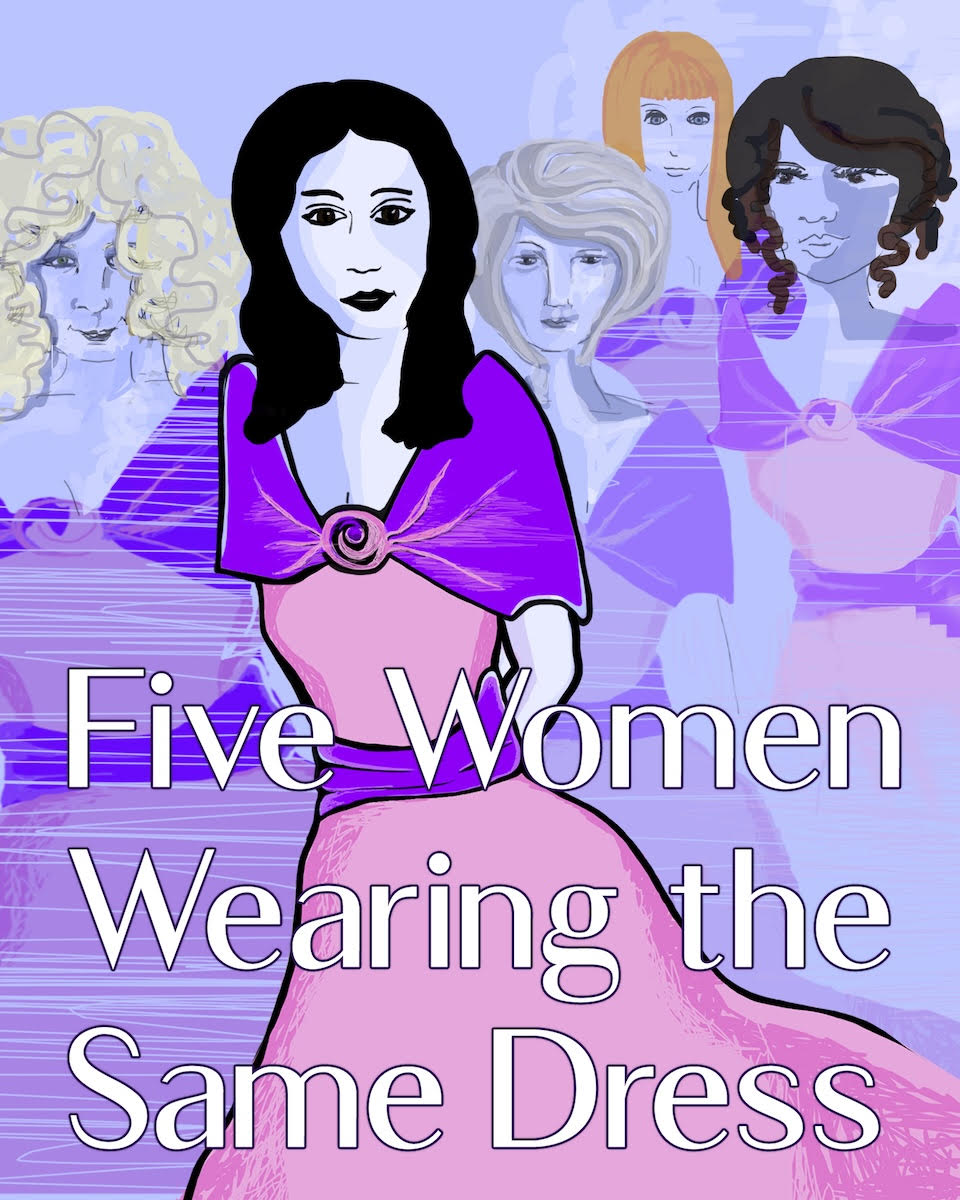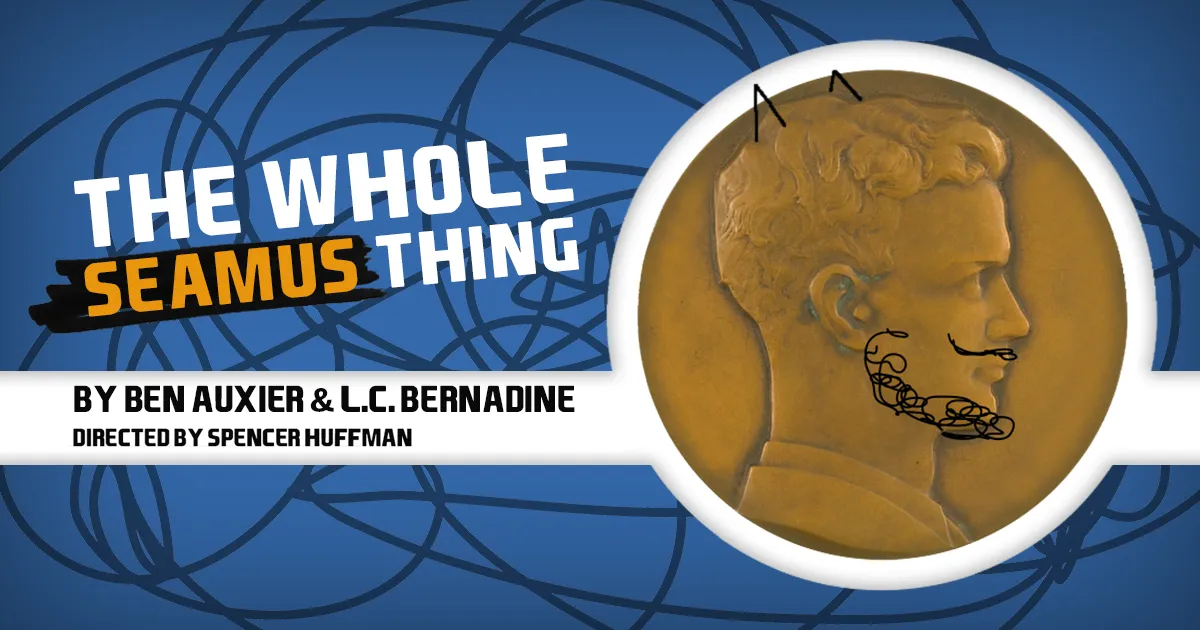
Highly Recommended
A group of bridesmaids hiding out in an upstairs bedroom during a wedding reception find reasons to bond in “Five Women Wearing the Same Dress” produced by St. Sebastian Players.
Featuring costumes by Mary McCarthy, the bonding ritual begins with the common agreement that the attendants’ dress with matching hat chosen by the bride is perfectly ridiculous.
Eventually the bond is further forged by the realization that they don’t even really like the bride that much and the only reason any of them are there is because of some blood relation or past friendship.
There are moments of sincere introspection and serious revelations. As each woman reveals something of herself, they traverse a range of emotions; infuriated, anxious, remorseful, exasperated, frantic, exhausted, flirtatious, but overall, hilarious.
Francis (Kayla Erpenbeck) a self-declared devout Christian is the youngest of the group who ultimately has her eyes opened a bit by the other more worldly-wise ladies.
Merideth (Hannah Green) the hostile sister of the bride would prefer to be anywhere but this wedding and as far away from her Knoxville home as possible.
Trisha (Alexandra T. Cross) somewhat renowned for her past sexual proclivity is a former confident of the bride.
Georgeanne (Claire Rutkowski) involved in an unhappy marriage has encountered a past lover at the reception.
Mindy (Laura Peterson) is the openly lesbian sister of the groom.
Each of these actors do a superb job inhabiting their respective roles. The dialog by playwright Alan Ball is believable and smooth as the women segue from story to story. Director Jill Chuckerman Test moves the players seamlessly in and out of the one room set and around the stage in a very natural manner.
The set design by Emil Zbella is perfectly reminiscent of a fashionable bedroom in an upscale suburban Knoxville home, complete with 1980s style stenciling on the walls, a small chaise lounge and a make-up table or vanity where much of the action takes place.
Act One of this two act “drawing-room” comedy is flawless. My issue with Act Two is with the playwright, not the actors. Ball somewhat abruptly introduces a new male character, Tripp (Trey Sorensen) to serve as a love interest for one of the women. Since the play is set roughly in the 1990s there is dialog that was maybe hip and edgy at the time but seems a little cringy today.
I personally feel this new plotline needlessly takes the story in a new and unexpected direction. I wish he could have thought of an alternate way to wrap this up within the context of the established characters. In the end it does not spoil the experience but is more of a hiccup.
The theater is a comfortable venue with tiered seating that accommodates about 75 in the basement of St. Bonaventure Church. Sadly, there is no elevator so be prepared to navigate some stairs. Limited free parking is available in the back with plenty of additional street parking.
Details: “Five Women Wearing the Same Dress” produced by St. Sebastian Players at St. Bonaventure Church, 1625 W. Diversey, Chicago, IL runs through May 18, 2025. Running time is 2 hours including a 10-minute intermission. For tickets and information visit saintsebastianplayers.org
Reno Lovison




